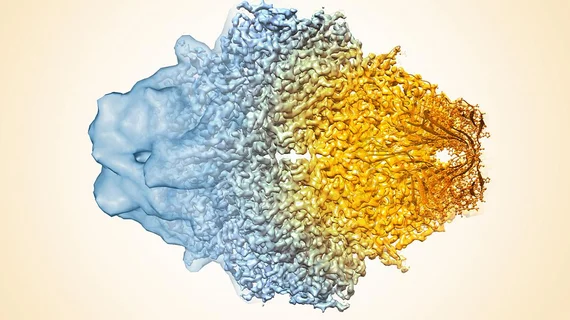NIH funds development of 3 national cryo-electron microscopy centers
The National Institutes of Health (NIH) announced efforts to widen the scientific community's access to cryo-electron microscopy (cryo-EM) through its Transformative High Resolution Cryo-Election Microscopy program.
According to a May 15 press release, the NIH is funding the creation of three national cryo-EM service centers to provide scientists access to advanced cryo-EM technology, curriculum development regarding cryo-EM methodology, sample preparation and computational analysis training.
With cryo-EM, scientists can image frozen molecules without using structure-altering fixatives or crystallization, according to the NIH. The method is superior to x-ray crystallography, because it can generate detailed images and structures of biological molecules. However, despite its powerful high-resolution, access to essential equipment and properly trained personnel are lacking, according to the press release.
“Cryo-electron microscopy is allowing us to resolve the three-dimensional structures of important biomolecules involved in disease that were inaccessible using previous technologies,” said National Institute of General Medical Sciences Director Jon Lorsch, PhD, in a prepared statement. “The NIH wants to ensure as many scientists as possible have access to this crucial technology.”
The three cryo-EM national centers will be established with six-year awards, totaling to $129.5 million. The centers will be established at the following academic institutions: the New York Structural Biology Center in New York City, the Oregon Health & Science University in Portland in partnership with the Pacific Northwest National Laboratory in Richland, Washington and the SLAC National Accelerator Laboratory at Stanford University.
The centers are expected to offer limited services later this year as they continue to be developed, according to the press release.

